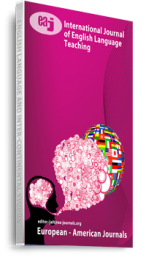This paper seeks to examine the effectiveness of the experiential learning theory by David Kolb in enhancing language learning strategies in an EFL context. Kolb’s four-stage model enables the learner to learn by experiencing, reflecting, conceptualizing and experimenting. The experimental group were selected through purposive sampling technique and comprised of 60, Undergraduate students registered for a Business programme. A series of tasks were designed to facilitate the development of skills at each stage of the cycle. A pre and post strategy evaluation was done using the SILL (Strategy Inventory for Language Learning) devised by Rebecca Oxford (1990).In addition to the SILL, data were collected through semi-structured interviews and students reflections through reflective learning journals. Findings revealed that there was an extremely significant difference between the pre and post SILL survey results after the period of intervention. It resulted in a rise in strategy use from medium to high. Implications for further research into innovative pedagogical approach that would develop high strategy users are discussed.
Keywords: Curriculum, Experiential learning cycle, language learning strategies, teaching methodology reflection

